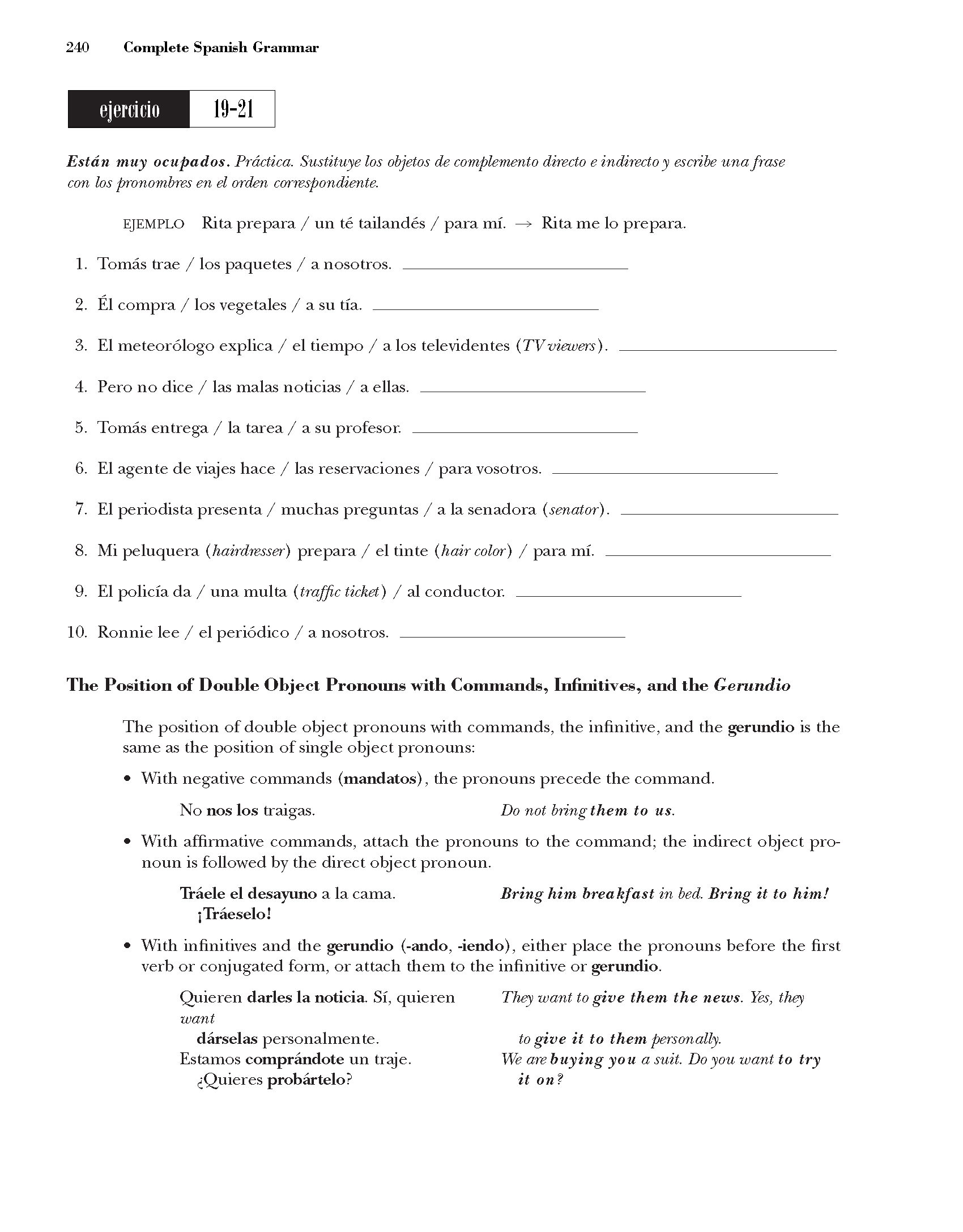CSG251

240 Complete Spanish Grammar
ejercicio
Estan muy ocupados. Prdctica. Sustituye los objetos de complemento directo eindirectoy escribe una frase eon los pronombres en el orden correspondiente.
EJEMPLO Rita prepara / un te tailandes / para mi. —> Rita me lo prepara.
1. Tomas trae / los paquetes / a nosotros. _
2. El compra / los vegetales / a su tia. _
3. El meteorólogo explica / el tiempo / a los televidentes (TVviewers). _
4. Pero no dice / las malas noticias / a ellas. _
5. Tomas entrega / la tarea / a su profesor. _
6. El agente de viajes hace / las reservaciones / para vosotros. _
7. El periodista presenta / muchas preguntas / a la senadora {senator). _
8. Mi peluquera (hairdresser) prepara / el tinte (haircolor) / parami. _
9. El policiada / una multa (traffic ticket) / al conductor. _
10. Ronnie lee / el periódico / a nosotros. _
The Position of Double Object Pronouns with Commands, Infinitives, and the Gerundio
The position of double object pronouns with commands, the infinitive, and the gerundio is the same as the position of single object pronouns:
• With negative commands (mandatos), the pronouns precede the command.
No nos los traigas. Do not bńng them to us.
• With affirmative commands, attach the pronouns to the command; the indirect object pro-noun is followed by the direct object pronoun.
Traele el desayuno a la cama. Bring him breakfast in bed. Bring it to him!
jTraeselo!
• With infinitives and the gerundio (-ando, -iendo), either place the pronouns before the first verb or conjugated form, or attach them to the infinitive or gerundio.
Quieren darłeś la noticia. Si, quieren They want to give them the news. Yes, they want
darselas personalmente. to give it to them personally.
Estamos comprandote un traje. We arebuying you a suit. Doyou want to try
^Ouieres probartelo? it on?
Wyszukiwarka
Podobne podstrony:
CSG051 40 Complete Spanish Grammarejercicio El sabado Marta estuvo muy ocupada. Entreparentesis, sub
CSG165 154 Complete Spanish Grammar Auiique es muy dificil, voy a hacer esta Although it is difficul
CSG229 218 Complete Spanish Grammar ejercicio iDónde estan los adjetivos? Identifica todos los adjet
CSG187 176 Complete Spanish Grammar Guarden los libros ya. Pu t the books away imm
CSG293 282 Complete Spanish Grammarejercicio l Que clase de relación existe entre los elementos de l
więcej podobnych podstron